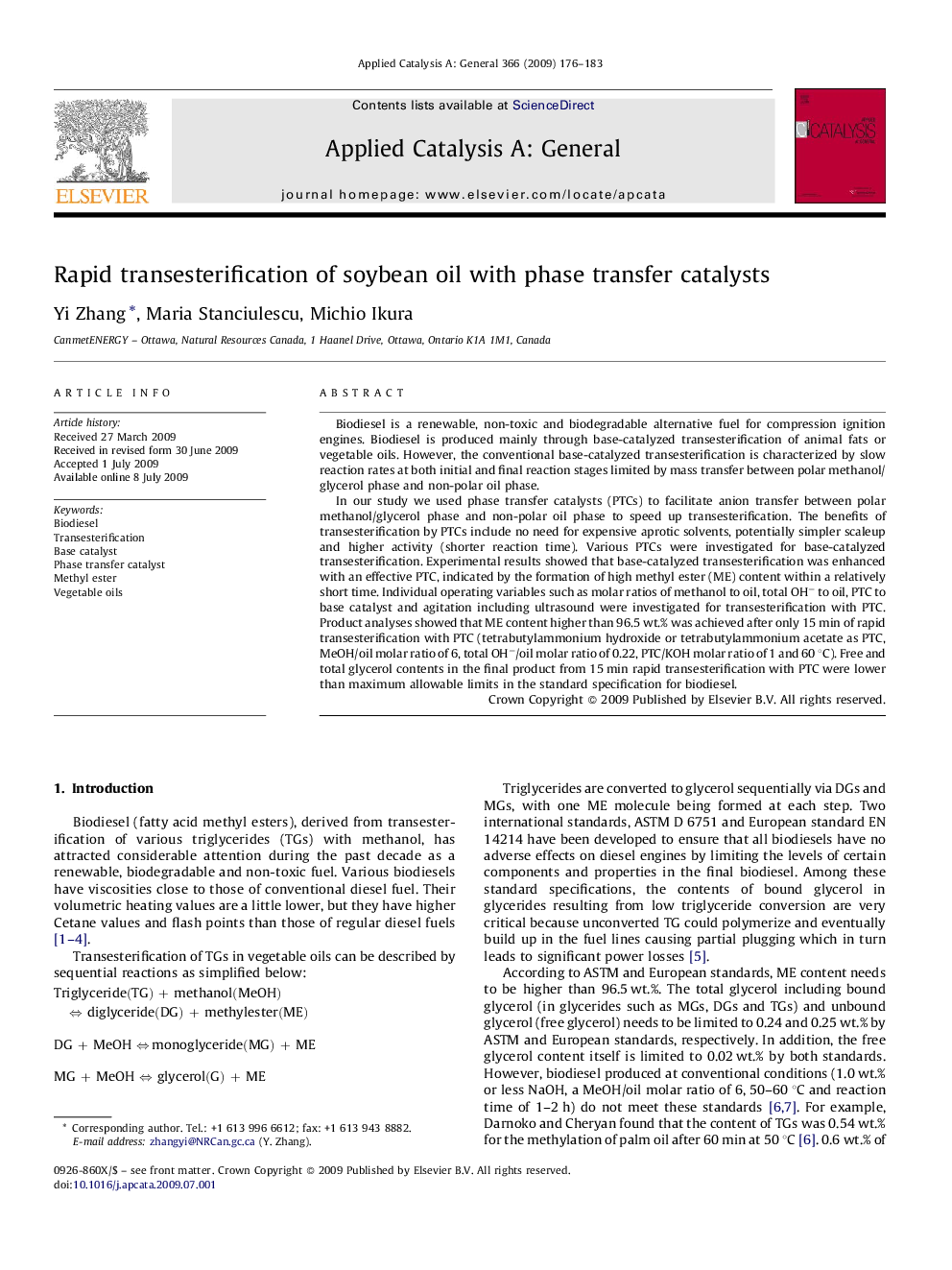| Article ID | Journal | Published Year | Pages | File Type |
|---|---|---|---|---|
| 42771 | Applied Catalysis A: General | 2009 | 8 Pages |
Biodiesel is a renewable, non-toxic and biodegradable alternative fuel for compression ignition engines. Biodiesel is produced mainly through base-catalyzed transesterification of animal fats or vegetable oils. However, the conventional base-catalyzed transesterification is characterized by slow reaction rates at both initial and final reaction stages limited by mass transfer between polar methanol/glycerol phase and non-polar oil phase.In our study we used phase transfer catalysts (PTCs) to facilitate anion transfer between polar methanol/glycerol phase and non-polar oil phase to speed up transesterification. The benefits of transesterification by PTCs include no need for expensive aprotic solvents, potentially simpler scaleup and higher activity (shorter reaction time). Various PTCs were investigated for base-catalyzed transesterification. Experimental results showed that base-catalyzed transesterification was enhanced with an effective PTC, indicated by the formation of high methyl ester (ME) content within a relatively short time. Individual operating variables such as molar ratios of methanol to oil, total OH− to oil, PTC to base catalyst and agitation including ultrasound were investigated for transesterification with PTC. Product analyses showed that ME content higher than 96.5 wt.% was achieved after only 15 min of rapid transesterification with PTC (tetrabutylammonium hydroxide or tetrabutylammonium acetate as PTC, MeOH/oil molar ratio of 6, total OH−/oil molar ratio of 0.22, PTC/KOH molar ratio of 1 and 60 °C). Free and total glycerol contents in the final product from 15 min rapid transesterification with PTC were lower than maximum allowable limits in the standard specification for biodiesel.
Graphical abstractVarious PTCs (phase transfer catalysts) were investigated for base-catalyzed transesterification of soybean oil. Experimental results showed that the rates of base-catalyzed transesterification were enhanced with the use of PTCs, indicated by high methyl ester (ME) content within a relatively short time. Individual operating variables such as the molar ratios of methanol to oil, total OH− to oil, PTC to a base catalyst and agitation including ultrasound were investigated for transesterification with PTC.Figure optionsDownload full-size imageDownload as PowerPoint slide
